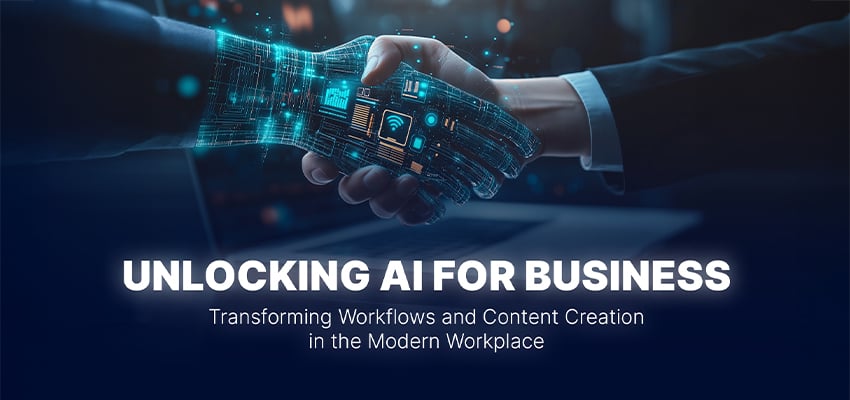Artificial intelligence (AI) is rapidly changing the way businesses operate, and two experts, Nikki Cech and Rob Cupello, recently shared how AI tools can enhance workflows, automate tasks, and help future generations. We discussed whether we could create content. Their conversation addressed the current capabilities and limitations of AI, particularly in small businesses and service industries such as healthcare.
Nikki started the conversation with a desire for AI agents and processes to streamline business. In response, Robb clarified the difference between AI and automation, explaining that companies can automate certain tasks without the need for true AI. However, businesses such as massage therapists (RMTs), chiropractors, and acupuncturists can benefit from AI in their workflows, including appointment booking systems. These businesses can also use AI-driven chatbots to respond to customer questions and automatically book reservations.
AI tools such as chatbots enable customer acquisition by engaging with potential customers as well as existing regular customers. Robb emphasized that while some business owners may already be using apps like Jane for scheduling, these apps still lack AI-generating capabilities. Most chatbots today are rule-based, but generative AI models like ChatGPT can have deeper conversations and tailor responses to specific client needs, he noted.
Another key insight Rob gained was the importance of automating communication with existing clients. Instead of focusing only on new business, businesses can set up automated email sequences to re-reach customers they haven’t visited in a while. Using AI, companies can personalize these emails and tailor sales pitches based on previous interactions.
Despite the excitement surrounding AI, Rob cautioned that many of the most innovative tools are still in development. For example, although generative AI models have made significant progress, we still do not have fully AI agents capable of managing complex business processes. However, tools available today, such as ChatGPT for content creation and MidJourney for image generation, already provide valuable functionality for businesses.
As AI evolves, companies are realizing that AI can not only create content, but also generate video and audio. Rob talked about tools like Notebook LM, which converts written content into podcast-style audio, and CapCut, which converts written articles into videos. This allows business owners to reuse content in different formats with minimal effort.
Rob also shared the surprising results of a recent experiment. AI-generated content often outperforms human-generated content in SEO and search rankings. This finding highlights AI’s ability to optimize content for search engines more effectively than human authors, making it an important tool for businesses looking to increase their online visibility. I am.
Nikki and Rob say that understanding how AI models work, such as how ChatGPT generates content based on massive datasets, can have a big impact on how companies use these tools. I agreed. For example, businesses can tell ChatGPT to act like a content creator in a specific industry, allowing the model to tailor content to the trends and needs of that niche.
Looking to the future, Rob believes all businesses should consider AI tools to enhance their workflows. He recommends creating content in ChatGPT first, then incorporating an image generation tool like MidJourney. When businesses integrate these tools, they can further improve efficiency and content capabilities to stay competitive in an AI-driven world.
The pair also noted growing concerns about intellectual property rights when using AI-generated images. Rob revealed that tools like MidJourney generate unique images every time, so businesses can use the assets they create without worrying about duplication. However, he noted that laws regarding AI-generated content are still evolving, especially in different regions.
To conclude the discussion, Nikki and Rob invited listeners to upcoming events and webinars. There, attendees can learn more about AI tools and how to integrate them into their business. They emphasized the importance of continuous learning as AI tools rapidly evolve. Rob also noted that in February he launched an in-depth course on AI designed to help businesses maximize the power of AI tools.
For anyone wanting to learn more about AI, Nikki and Rob’s upcoming events and resources are a great starting point. The future of AI is bright, and companies that stay ahead of the curve will reap the benefits.



